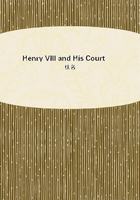
第25章 HENRY THE EIGHTH AND HIS WIVES.(4)
i, p. 37.] It is true, Catharine had in the Princess Mary a living witness of the consummation of her marriage, but what did the enamored and selfish king care about that? Princess Mary was declared a bastard, and the queen was now to be nothing more than the widow of the Prince of Wales. It was strictly forbidden to longer give the title and to show the honor due to a queen, to the woman who for seventeen years had been Queen of England, and had been treated and honored as such. No one was permitted to call her anything but the Princess of Wales; and that nothing might disturb the good people or the noble queen herself in this illusion, Catharine was banished from the court and exiled to a castle, which she had once occupied as consort of Arthur, Prince of Wales. And Henry likewise allowed her only the attendance and pension which the law appoints to the widow of the Prince of Wales.[Footnote: Burnet, vol. i, p. 120.]
"I have ever held this to be one of the most prudent and subtle acts of our exalted king, and in the whole history of this divorce the king conducted himself with admirable consistency and resolution.
But this is to say, he was excited by opposition. Mark this, then, my child, for this is the reason why I have spoken to you of these things so much at length. Mark this, then: King Henry is every way entirely unable to bear contradiction, or to be subjected to restraint. If you wish to win him to any purpose, you must try to draw him from it; you must surround it with difficulties and hinderances. Therefore show yourself coy and indifferent; that will excite him. Do not court his looks; then will he seek to encounter yours. And when finally he loves you, dwell so long on your virtue and your conscience, that at length Henry, in order to quiet your conscience, will send this troublesome Catharine Parr to the block, or do as he did with Catharine of Aragon, and declare that he did not mentally give his consent to this marriage, and therefore Catharine is no queen, but only Lord Neville's widow. Ah, since he made himself high-priest of his Church, there is no impediment for him in matters of this kind, for only God is mightier than he.
"The beautiful Anne Boleyn, Henry's second wife, proved this. I have seen her often, and I tell you, Jane, she was of wondrous beauty.
Whoever looked upon her, could not but love her, and he whom she smiled upon felt himself fascinated and glorified. When she had borne to the king the Princess Elizabeth, I heard him say, that he had attained the summit of his happiness, the goal of his wishes, for the queen had borne him a daughter, and so there was a regular and legitimate successor to his throne. But this happiness lasted only a brief time.
"The king conceived one day that Anne Boleyn was not, as he had hitherto believed, the most beautiful woman in the world; but that there were women still more beautiful at his court, who therefore had a stronger vocation to become Queen of England. He had seen Jane Seymour, and she without doubt was handsomer than Anne Boleyn, for she was not as yet the king's consort, and there was an obstacle to his possession of her--the Queen Anne Boleyn. This obstacle must be go out of the way.
"Henry, by virtue of his plentitude of power, might again have been divorced from his wife, but he did not like to repeat himself, he wished to be always original; and no one was to be allowed to say that his divorces were only the cloak of his capricious lewdness.
"He had divorced Catharine of Aragon on account of conscientious scruples; therefore, some other means must be devised for Anne Boleyn.
"The shortest way to be rid of her was the scaffold. Why should not Anne travel that road, since so many had gone it before her? for a new force had entered into the king's life: the tiger had licked blood! His instinct was aroused, and he recoiled no more from those crimson rills which flowed in the veins of his subjects.
"He had given Lady Anne Boleyn the crimson mantle of royalty, why then should she not give him her crimson blood? For this there was wanted only a pretext, and this was soon found. Lady Rochfort was Jane Seymour's aunt, and she found some men, of whom she asserted that they had been lovers of the fair Anne Boleyn. She, as the queen's first lady of the bed-chamber, could of course give the most minute particulars concerning the matter, and the king believed her.
He believed her, though these four pretended lovers of the queen, who were executed for their crime, all, with the exception of a single one, asseverated that Anne Boleyn was innocent, and that they had never been in her presence. The only one who accused the queen of illicit intercourse with him was James Smeaton, a musician.
[Footnote: Tytler.] But he had been promised his life for this confession. However, it was not thought advisable to keep this promise, for fear that, when confronted with the queen, he might not have the strength to sustain his assertion. But not to be altogether unthankful to him for so useful a confession, they showed him the favor of not executing him with the axe, but the more agreeable and easier death of hanging was vouchsafed to him.[Footnote: Burnet, vol. i, p. 205.]